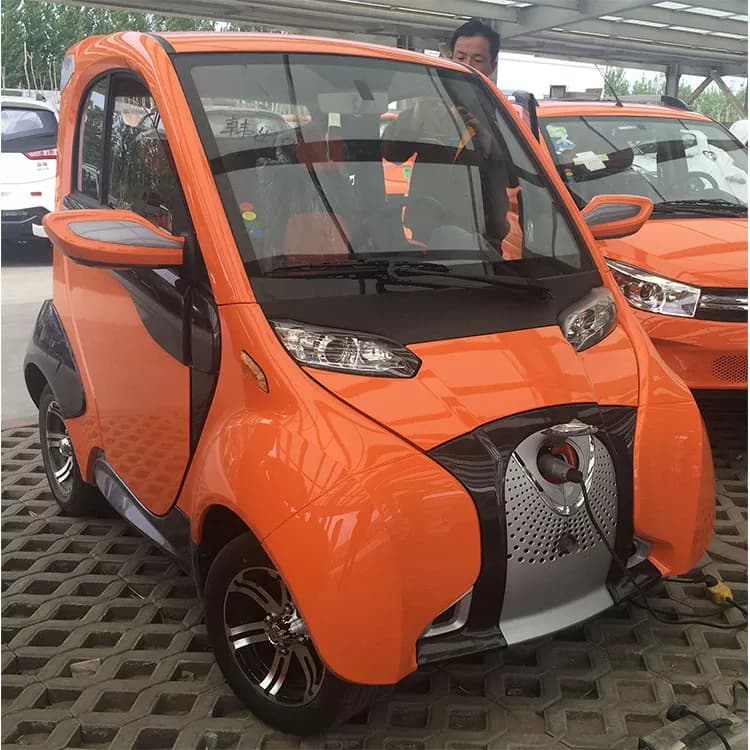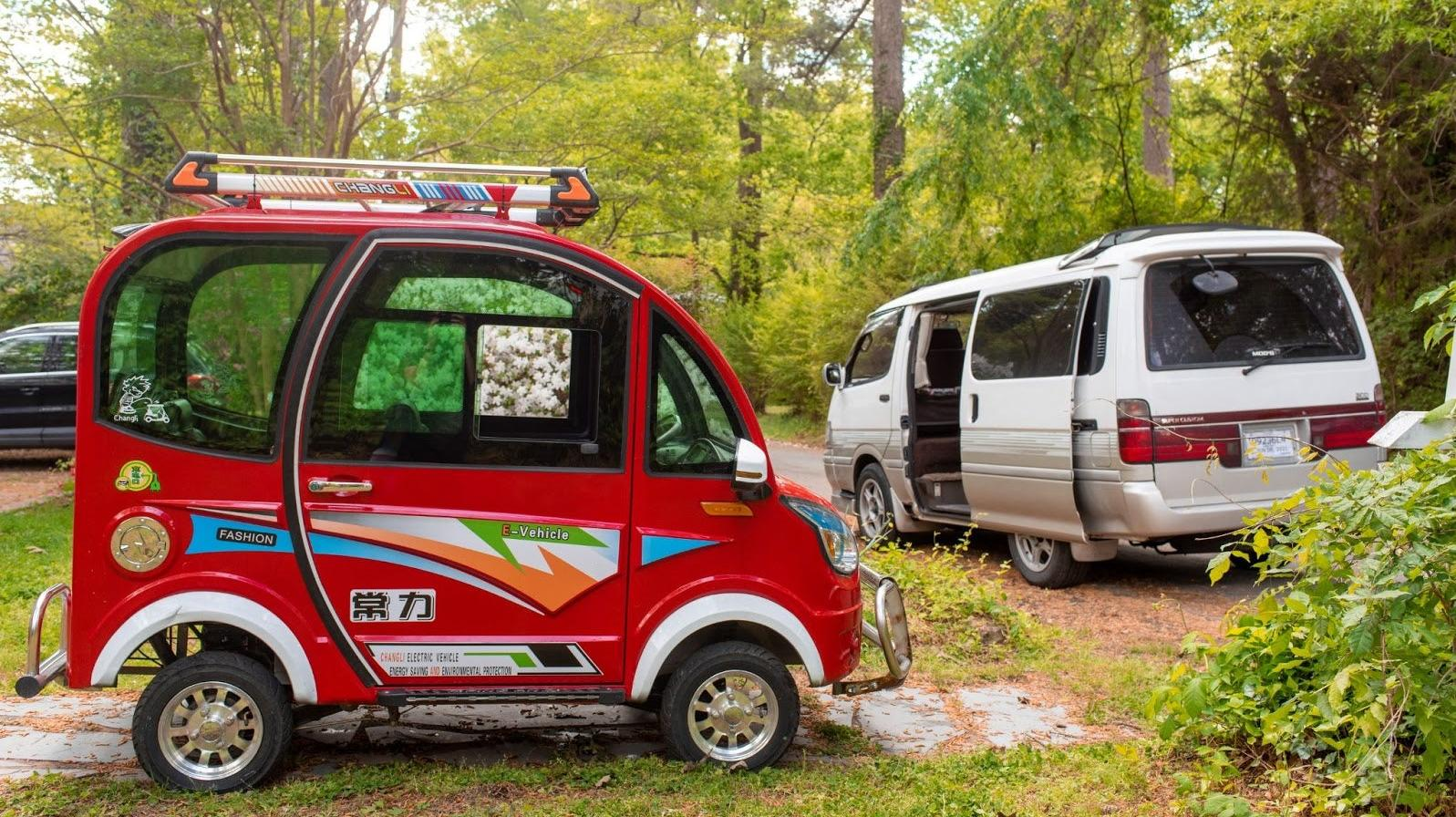
BYD Seagull US$4,600.00-11,500.00 A Pop

76% Of Young Americans Would Buy A Chinese EV, Despite Privacy Risks
Study showed strong interest in EVs from China but more than two thirds of respondents would worry about data sharing if Chinese cars were sold in the U.S.
- 76 percent of Americans under 40 would consider buying a Chinese EV, study by AutoPacific found.
- Hesitancy among over 60s reduced the number of 18-80-year-olds open to Chinese EV ownership to 35 percent.
- Exposure to Chinese brands through social media is helping fuel desire, despite worries about data sharing.
U.S. buyers can’t currently purchase any Chinese-branded EVs, but a new study revealed that drivers aged under 40 would welcome them with open arms. It found that a massive 76 percent of younger Americans would consider buying a Chinese EV… More @ Carscoops
 Xiaomi SU7 Ultra: Xiaomi’s insane performance EV prototype, 0-100km/h in 1.97s and top-speed beyond 350km/h
Xiaomi SU7 Ultra: Xiaomi’s insane performance EV prototype, 0-100km/h in 1.97s and top-speed beyond 350km/h
We imagine the number of Canadians would buy a Chinese EV could be even higher, as we are generally known as more environmental friendly folks.
Seriously,
Should Canada remove tariffs on Chinese EV’s so Canadians have access to state of the art vehicles?
Analysis by Eddie Hardie,
The decision to remove tariffs on Chinese electric vehicles (EVs) in Canada involves a complex balance of economic, environmental, and geopolitical considerations. Here are some key points to consider:
Pros of Removing Tariffs:
- Consumer Benefits:
- Lower Prices: Removing tariffs could make Chinese EVs more affordable for Canadian consumers, increasing access to state-of-the-art technology.
- Increased Options: Canadian consumers would have a wider range of EV models to choose from, potentially accelerating the adoption of electric vehicles.
- Environmental Impact:
- Reduced Emissions: Increased EV adoption could help Canada meet its climate goals by reducing greenhouse gas emissions from the transportation sector.
- Technological Advancements: Chinese EVs often come with advanced features and battery technology, which could push the entire market toward innovation.
- Economic Considerations:
- Market Competition: Lower tariffs could stimulate competition, potentially leading to better products and services in the EV market.
- Supply Chain Benefits: Access to Chinese EVs could also mean access to Chinese battery technology and other components, which could benefit the broader automotive industry in Canada.
BYD U8: The first & only car capable of 360 degree turning in the world
BYD auto umbrella Yangwang U8 doing 360°
byu/anonymousbroda52 inCarsIndia
Cons of Removing Tariffs:
- Domestic Industry Impact:
- Local Manufacturers: Canadian automakers and those with manufacturing plants in Canada (like Ford, GM, and Stellantis) might face increased competition, potentially harming local jobs and industries.
- Market Share: Chinese EVs could dominate the market, making it difficult for domestic or other international brands to compete.
- Geopolitical Concerns:
- Dependence on China: Increasing reliance on Chinese technology and manufacturing could pose strategic risks, especially given the geopolitical tensions between China and Western countries.
- Trade Relations: The decision could affect Canada’s trade relations with other countries, particularly the United States, which has its own set of tariffs and trade policies regarding Chinese goods.
- Quality and Safety Standards:
- Regulatory Differences: Chinese EVs might not initially meet Canadian safety and environmental standards, requiring additional regulatory oversight.
- Consumer Trust: There may be concerns among Canadian consumers regarding the quality and longevity of Chinese-made vehicles.
Conclusion:
The decision to remove tariffs on Chinese EVs is not straightforward and requires careful consideration of the potential benefits and drawbacks. Policymakers would need to weigh the immediate consumer benefits and environmental advantages against the long-term impacts on the domestic automotive industry and geopolitical considerations. Public consultations, economic impact studies, and strategic planning would be essential steps in making an informed decision.
Ultimately, the goal should be to create a balanced policy that promotes innovation, environmental sustainability, and economic growth while protecting domestic interests and maintaining strategic autonomy.
Dancing BYD U9: The first & only car that can perform Bunny Hop Dancing in the world
@carwowImagine doing this in traffic 😭♬ original sound – carwow
The said,
If the trade war hobbles Canada’s auto sector, let’s just phase it out
Among his many threats this week, U.S. President Donald Trump vowed to “permanently shut down” Canada’s automobile industry with tariffs on Canadian cars coming into the U.S.
Ottawa should threaten Mr. Trump with retaliatory tariffs on American automobiles and parts entering Canada. Canadian consumers have numerous high-quality alternatives from Asia, making it easy to avoid American-made vehicles. This prospect might give Mr. Trump pause.
But we need to think longer-term and bigger-picture. And for that we should look to our Australian friends.
China’s People’s Car: Affordable Mini EVs Starting from $5,000









Canada’s geographic situation might soon resemble Australia’s, if our largest trading partner can no longer be counted on. We’d be similarly isolated, thousands of kilometres away from the other major world economies, such as China and Europe. But Australia, despite its geographic remoteness that makes international trade difficult, has managed to thrive economically, boasting a GDP per capita that is at least as high as Canada’s.
Here’s how Australia accomplished that: Embracing free trade, Australia accepted that they were not competitive in automobile production. By 2017, their domestic industry for new vehicles had been phased out and they now import automobiles with either no tariffs or low ones. This allowed Australia to focus on their more competitive industries such as mining, finance, construction and health care.
China’s People’s Super Cool Dirt Cheap EVs Starting from $1,000




This guy bought a $900 car on Alibaba!

Even Trucks!
![eBikeschool.com] How my "$2,000" Chinese Electric Truck is Holding Up (3 Month Update) : r/electricvehicles](https://i.ytimg.com/vi/irpe3biuBIU/maxresdefault.jpg)
Changli Explorer Electric Pickup Review… 18 Months Later — Held Up Extremely Well, Super Value For Money!

And this…
Solar-Powered Tuk Tuk $800

Canada can learn from Australia’s experience. If the U.S. implements tariffs that make our auto sector no longer economically viable, Canada should let the auto sector wind down.
Even before this week’s threats, President Trump had twice threatened 25-per-cent tariffs on the Canadian auto sector only to pull back each time for 30-day pauses. It is difficult to see both nations maintaining an integrated automobile supply chain even if he once again pauses tariffs on the auto sector.
Moreover, the auto sector is hardly the powerhouse it once was, as another writer argues in these pages. The sector made only 1.38 million cars last year, fewer than the 1.86 million Canadians bought. The electric-vehicle battery plants Ottawa has championed are slated to receive $43.6-billion in incentives from the federal and provincial governments. And in the current climate, some of these plants might be cancelled or delayed.
If the Canadian auto sector is phased out, the disruption to the Canadian economy would be significant but manageable, given that the automobile industry represents around 0.89 per cent of the Canadian economy. The fraction of all employees in Canada in the auto sector is smaller at around 0.67 per cent. (That suggests the sector punches above its weight, though not significantly when put against, say, the energy sector, which represents 10.3 per cent of the economy with 1.5 per cent of the work force).
As with any industry, phasing out the auto sector will have a short-term effect on other sectors that rely on it. But in the medium term, these consequences would dissipate as the economy pivots toward new and growing industries, which would absorb many of the laid-off workers.
We should therefore keep that in mind when we consider any future government assistance for the auto sector. Before Canada commits even larger amounts of money, we must ask whether it is in the national interest – or if it keeps alive a less competitive industry at the expense of more competitive ones.
$10,000 for this Classic on Alibaba
A real Chinese EV for sale on Alibaba – Link in Comment
byu/SFX200 inWeirdWheels
Industrial restructuring is an inherent feature of modern economies. While job losses will be painful for affected workers and their families, Canada’s Employment Insurance system provides support. Displaced workers could likely transition to industries such as construction, which we need because of the housing crisis, and where well-paid jobs exist and are difficult to fill.
Given the uncertainty of the Canada-U.S. relationship, the Canadian government should also consider major investments in the energy sector, where we have great comparative advantage, and domestic military production, which we need because of Mr. Trump’s rewriting of the world order. These expanding sectors would provide employment opportunities for displaced workers.
Canadians need to accept that the U.S. tariffs may make sectors such as automobile production no longer competitive and, as the Australians did, allow production to shift to other important and expanding industries.

Hongqi: China’s Ultra Luxury Flagship Car… better than Bentley or Rolls Royce

@topgroupcars HongQi C801#chinesecar #chinesecars #hongqic801 #hongqiguoya ♬ Akher Yawm – Ghaliaa & Always April
![What's this [Unknown]? Dad says it's the "Chinese Rolls Royce" : r/whatisthiscar](https://preview.redd.it/whats-this-unknown-dad-says-its-the-chinese-rolls-royce-v0-g32ft5z3cd1a1.jpg?width=1080&crop=smart&auto=webp&s=2410da7e1f5a18d81d50303bfa929b842b8af861)




 Canada’s Inflation Rate unexpected Leaps Sharply to 8-month High 2.6% as Sales Tax Break Ends and Tariff bite still looms… Explosive Inflation (and anticipated recession) may force Bank of Canada to Pause Rate Cuts
Canada’s Inflation Rate unexpected Leaps Sharply to 8-month High 2.6% as Sales Tax Break Ends and Tariff bite still looms… Explosive Inflation (and anticipated recession) may force Bank of Canada to Pause Rate Cuts
Whaddaya Say?